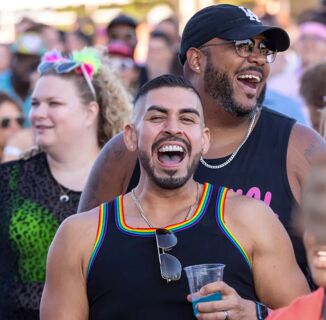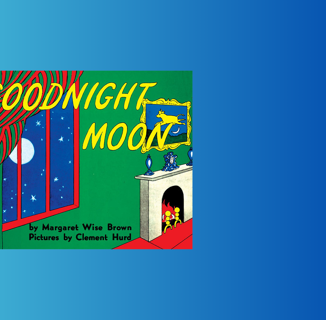Sex is strange.
I’m a femme queer person who has, on multiple occasions, voluntarily spent time in a Bass Pro Shop, and yet getting naked in front of another person will still top the list of Times I’ve Felt Most Out of Place. Maybe it’s because I didn’t start having sex until I was in my twenties. Or, perhaps it’s a result of the fact that I spent the majority of my life supremely uncomfortable even taking my shirt off at the pool. Either way, the courage it takes to disrobe in front of another person is well worth it because at least I can ensure the sex that follows will be good, maybe even great, and often, spectacular.
In 2018, there aren’t a lot of benefits to being a queer person, so it’s important to take a win when we can find one. According to research detailed in Netflix’s new docuseries Explained, one thing queer folks do have going for us is that if we’re going to have sex, we’re probably going to do it better than our straight friends — a lot better.
It seems it might be better because we’ve got to talk about it from the very beginning — and I don’t just mean ensuring there is clear and enthusiastic consent (because consent isn’t just sexy; it’s mandatory). Unlike with straight couples, there’s not a guarantee that part A goes in part B, or part C or D for that matter.
“There’s a lot more communication. There’s more turn-taking,” says Lisa Diamond, a professor of psychology at the University of Utah. “[Same sex couples] have to reject what is normal, because what is normal according to society, is being heterosexual.”
And apparently, for heterosexual couples, subpar sex is normal.
According to a recent study, 86 percent of queer women achieve orgasm during sex, compared to only 65 percent of straight women. And while, of course, straight men are the most likely to achieve orgasm during sex, topping the list at 95 percent, gay men are not far behind at 89 percent. Facts are facts, people — by the numbers, queer people are having better sex across the board, and it probably has a lot to do with the openness with which queer folks are talking about and engaging with sex.
“Gay people grow up with fewer scripts about how sex is supposed to be,” Rachel Bloom narrates in Explained, and she’s right.
Bedtime Stories, a video series from them, explores the nuanced, intimate, and often unconventionally exhilarating ways queer people are pleasuring their partners and themselves. There is more to sex than just achieving orgasm; there is intimacy and vulnerability and surprise, things queer people appear more than well versed in.
“This is why kink is so great,” Ashley Young says in one episode, “because before you even touch each other there is negotiation. What do you wanna do? What’s OK to say to you? What’s your safe word? What do I call your genitals? Like, these are conversations you have right before you even start playing.”
Most pre-college sex education is failing the youth of America, and unsurprisingly, not knowing how to talk about sex is one of the primary reasons for a lackluster sex life. A lot of people like to throw around the phrase “good sex takes time.” And it’s pretty universally accepted that when you’ve been having consistent sex with the same person, naturally you’ll learn what the other person likes and dislikes. However, what good sex actually takes is communication. As Explained, well, explains, women with a boyfriend are six times more likely to achieve orgasm than women taking part in a first-time hookup. In the same study mentioned earlier, asking for what they want in bed and praising their partner for something they did in bed were two paramount reasons for a higher reported rate of sexual fulfillment.
Certainly, my Private Catholic School upbringing didn’t equip me to understand sex with another man, but luckily every time I consent to having sex, some additional communication about sex has to occur before it happens. When I had sex for the first time, it didn’t feel strange to talk about what was happening while it was happening, because before it began that door was opened when we decided what goes where. Saying “a little to the left,” or “go faster,” or “slow down, what is this, last call at brunch?” (last line not recommended but effective nonetheless) became a tool for better sex, rather than an inhibitor of it.
I have been shocked by the number of brilliant, successful, straight women in my life who have talked to me about the lackluster sex they are having. Conversely, I have been stunned by the number of hilarious, handsome, straight men I know who are having the same struggle. I’m even more amazed when this Venn diagram overlaps. Time and again, when asked if they’ve tried talking about it to the person they’re having sex with, the response has been varying iterations of, “Oh my God, absolutely not.”
Even psychologists agree that talking about sex can be weird. For straight men, it’s probably some lingering masculinity complex, and for women, it probably has to do with the fact that, even in a post-Samantha Jones America, talking about sex is still taboo. And honestly, if you’re uncomfortable talking about sex, you probably shouldn’t be having it.
Talking about sex doesn’t need to be restricted to an in-act play-by-play. A next day performance review can be just as helpful. I once had someone give me some important feedback about teeth over drinks, which, in the end, paid off for both of us. Stereotypes about effeminate gay men or masculine gay women are pervasive, even in the queer community. However, I can assure you that before a bottom allows themselves to be confused for a top, a conversation will correct that assumption. And once that door has been opened, it can remain open to allow further conversation, inevitably leading to more fulfilling sex.
“Isn’t it weird to talk about, though?” is the most frequent question straight friends ask me when I talk about open sexual communication. Yeah, of course it is sometimes. But the only thing weirder is not enjoying sex.
Image via Getty
Help make sure LGBTQ+ stories are being told...
We can't rely on mainstream media to tell our stories. That's why we don't lock our articles behind a paywall. Will you support our mission with a contribution today?
Cancel anytime · Proudly LGBTQ+ owned and operated
Read More in Culture
The Latest on INTO
Subscribe to get a twice-weekly dose of queer news, updates, and insights from the INTO team.
in Your Inbox













